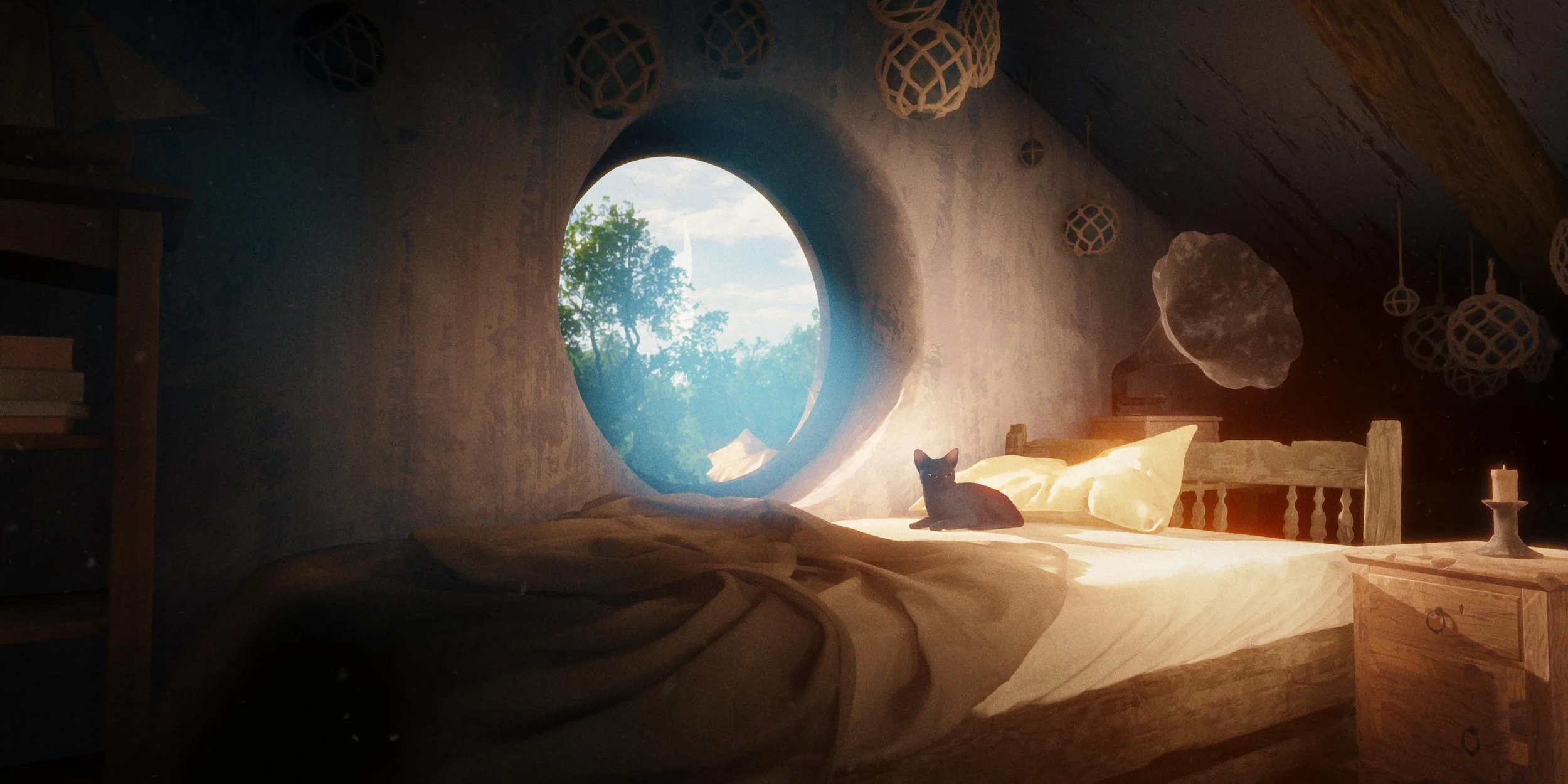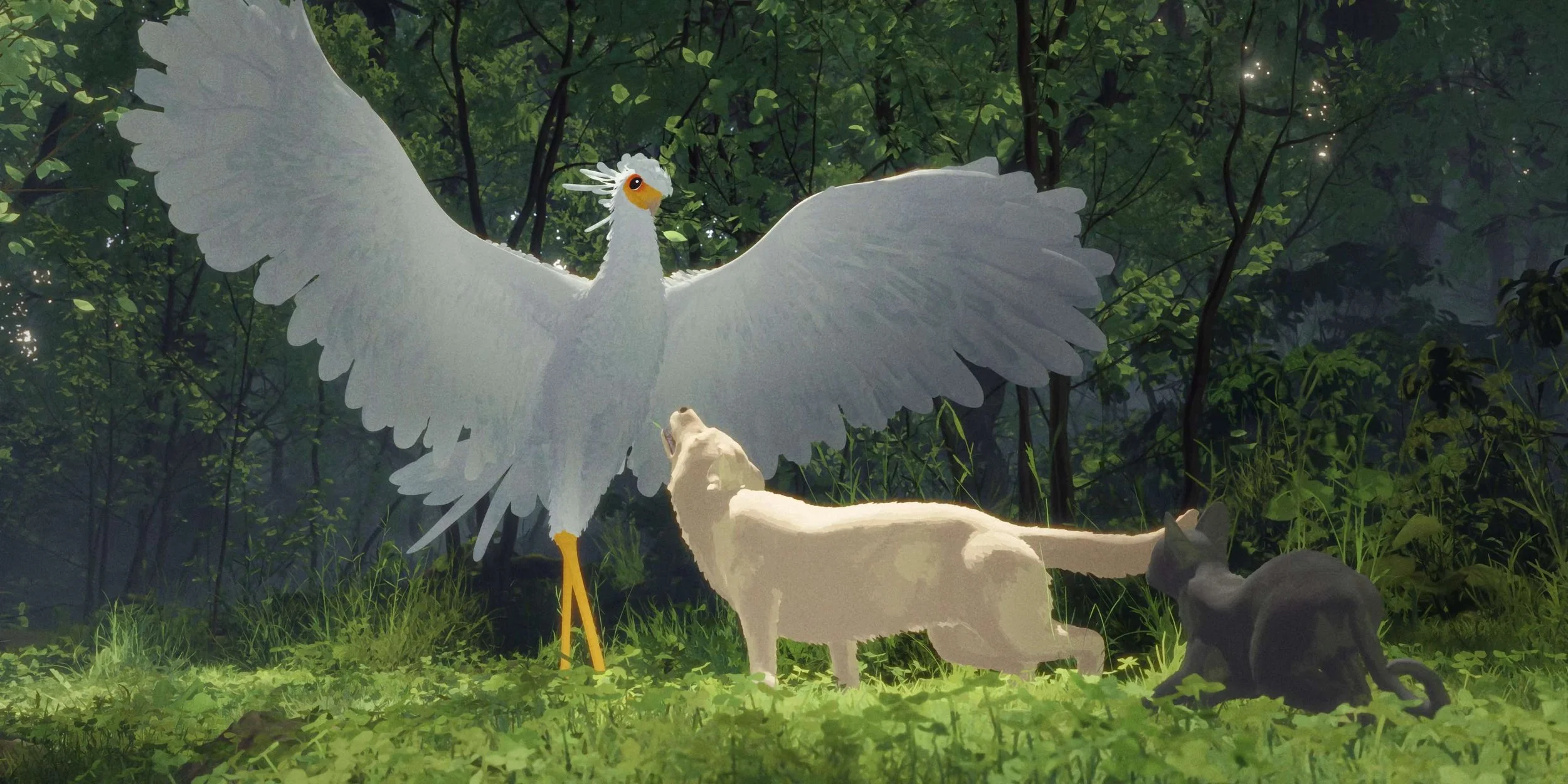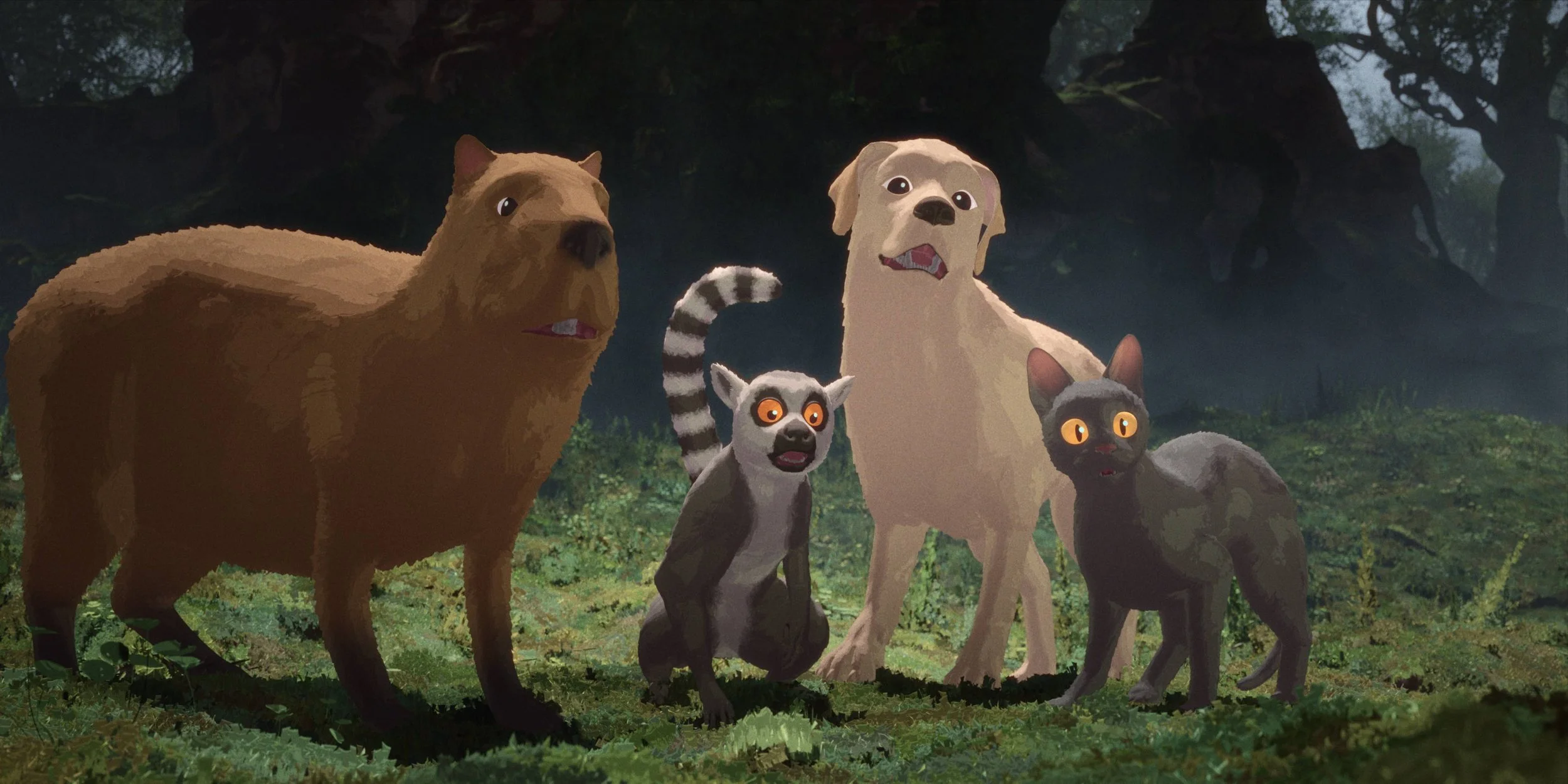Zero Ebb
Latvia’s first and only (so far) Oscar winner is worth the hype.
Flow
Director: Gints Zilbalodis • Writers: Gints Zilbalodis, Matīss Kaža
Latvia • 1hr 24mins
Opens Hong Kong April 4 • I
Grade: A
In Flow, a cat, let’s call them Cat, navigates a teeming forest in search of dinner, running from a pack of dogs and dodging stampeding deer before returning to their attic in an abandoned home. It seems some kind of environmental catastrophe has befallen the world, resulting in rapid flooding and the elimination of humanity. Cat wakes up the next morning and sees one of the dogs that was chasing them, we’ll call ’em Lab, outside barking up a storm and seemingly asking Cat to get out here and take off in a boat with some other dogs. Cat declines, but soon the tide starts rising, which forces them out of the house and onto the top of a massive cat statue. Eventually Cat is rescued when a rickety sailboat passes by, carrying a laid-back capybara. This will be Capy. Capy makes Cat nervous, but eventually they find a way to co-exist – especially after they’re joined on the barge by Lab, Lem the lemur and Bird, a secretarybird. Together they make this boat float and managed to survive the various threats and challenges they face on their journey. Where they’re going is to be determined.
Director Gints Zilbalodis spent five years on Flow, co-writing, editing, producing, DOPing and gorgeously co-scoring (with Rihards Zaļupe), working from open source 3D animation software Blender. The dialogue- and human-free eco-fable ultimately won awards at Annecy and Ottawa animation festivals, the Césars, the Golden Globes, finally beating The Wild Robot and Inside Out 2 for an Oscar – and deserved every one of its accolades. Not bad for US$3.8 million – 270 million fewer dollars than Robot and IO2 combined. I’m just sayin’.
I’m sayin’, because Flow is yet more proof that you don’t need blustery songs, bloated run times and corporate faux-concern – or a Brinks truck full of cash – to be creative, fun, meaningful and emotional. In the words of Dr Ian Malcolm, life (and art) finds a way. You know what else you don’t need? A-list movie stars cashing an easy cheque to take work away from voice actors (and the fear is AI?). Flow’s silence brings to mind the great Robot Dreams for its elegant and layered storytelling that has genuine tension and stakes, and makes us care about these vivid characters, even without words. The catastrophe in Flow is ecological and the climate risk message is crystal clear, but it’s also about a community coming together no matter their differences, fighting, sure, but making an effort to get along, get by and above all, look out for the weakest among them. In the pustule of a hellscape that is 2025, that message is crucial. Then again, Flow can simply be seen as a very pretty film about cute animals getting shit done. It works just as well each way.
One of Flow’s strengths is that, aside from the conceit of this group of animals acting like a crew, the cat, dog, capybara, secretarybird and lemur act like, well, animals. Anyone who has a cat will nod in recognition of the inimitable stop-cough up furball-stare at you-move on routine. Dog’s tail never stops wagging and Dog never stops demanding affection. It’s an effortless way to add personality to each character and double down on tension, which never really lets up; this post-apocalpytic world is dangerous.
But it’s also legitimately beautiful, sometimes peaceful, with a colourful, pastel (the oily crayons) palette defined by soft edges and fluid movement that never gets so frantic you can’t see what’s happening. Zilbalodis’s compositions are lush and imposing in equal parts; a stormy sea is visually overwhelming but the golden hour light guiding the crew into an abandoned city is welcoming. Flow is also dotted with sweet moments that are heavy with sentiment but never sentimental: Bird sticks up for Cat and loses his flock for it. Dog pushes down an urge to chase a rabbit and save Cat and Capy when the boat is trapped cliffside. Bird gets in a mood and petulantly tosses Lem’s glass ball (?) in the water. Capy teaches Cat to swim and to fish – and Cat shares his bounty with the crew. The real magic trick is how Zilbalodis is appealing to our better angels while low-key spanking us for planetary mismanagement. It’s magic because Zilbalodis and co-writer Matīss Kaža never get heavy-handed; you never really feel the spanking. Flow is an exemplar of family entertainment. Kids get these messages better than we give them credit for, the so-called adults could use a reminder of some of the most basic considerations these “lesser” life forms demonstrate. That said, it could be a bit stressful for very young kids; there are occasions when Cat’s adventure borders on harrowing. But Zilbalodis is fundamentally an optimist, and so somehow, some way Cat and Co. survive – and will probably thrive. These animals are way better off without us.



